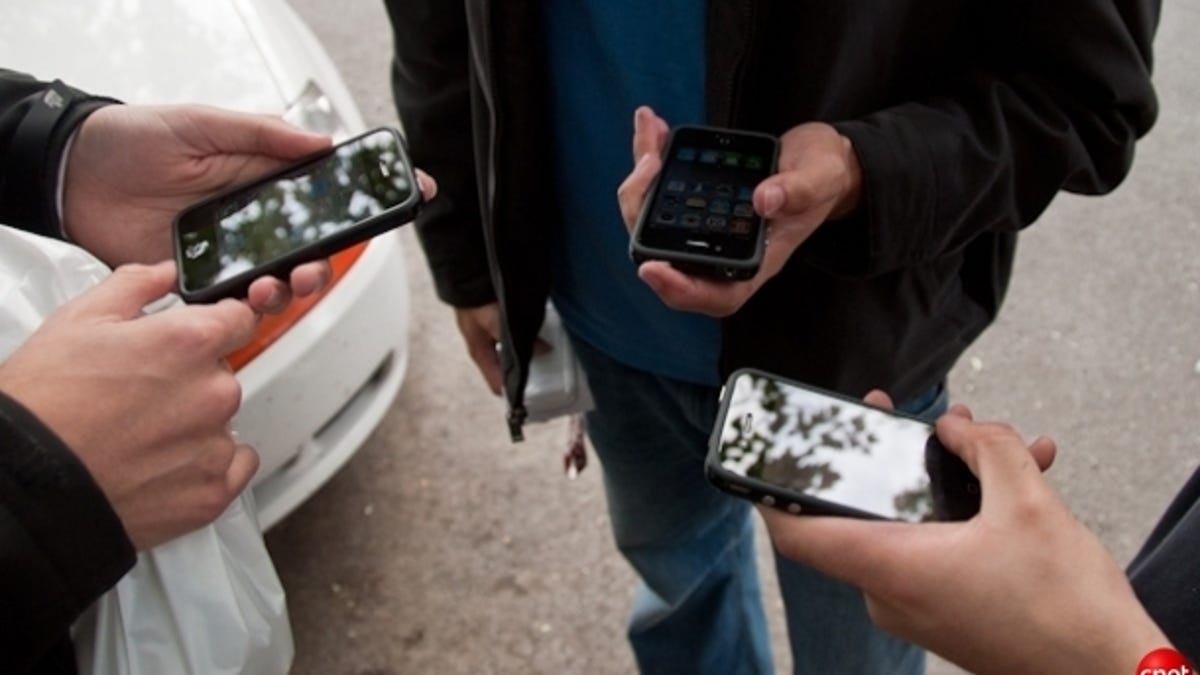NFC: The Apple rumor that just won't quit
The rumor that the next iPhone, along with other Apple products, will gain near-field communication technology, is proving to be quite persistent.
What a confusing week it's been for iPhone rumors. On Monday, a report by The Independent said that Apple was holding off on bringing near-field communication (NFC) technology to the next version of the iPhone, and then a story posted last night by Forbes claims that the effort is still on track.
The source on that newer report is said to be "an entrepreneur who is working on a top-secret NFC product," who has a buddy working at Apple. That's compared to The Independent's multiple sources on the matter, which were "several of the largest mobile operators in the UK."
Whom to trust may be less important than the underlying message: NFC is coming to a future iPhone, it's just a matter of when.
This is the latest in a series of reports that have pegged the iPhone and other Apple products as recipients of NFC technology. NFC allows data transfer between two devices at short distances (about 4 inches). For phones this could allow things like mobile payments, as well as transferring data between devices without the use of a cellular or nearby Wi-Fi network in a similar fashion to Bluetooth.
Signs that Apple was interested in NFC first cropped up in April last year, with the company filing a number of patents, which included use cases for the technology in its products. One of those entailed simply using an embedded NFC chip to pick up on a nearby item for purchase. Other, more advanced use cases included things like a smart shopping cart system that could tell what items you had put in your shopping bag, and let you pay for them on the spot with an NFC-enabled device.
One of the first big hints that NFC was coming to the next iPhone specifically originated from the blog TechCrunch some four months after the barrage of patent filings. That report, which cited an unnamed source, said that Apple planned to build NFC-enabled iPhones that used hardware from NXP Semiconductor. This was bolstered by the fact that just days before, the company had hired Benjamin Vigier, who had a background with NFC technology, to be its product manager for mobile commerce. Vigier had been a product manager at MFoundry, a company that handles payment technology for some 300 banks and credit unions, as well as PayPal's mobile service.
Shortly after the TechCrunch report, blog Cult of Mac claimed that Apple's intentions for NFC could stretch far beyond payments and include portable computing functionalities:
If users wave a NFC-equipped iPhone at a NFC Mac (they need to be in close proximity to interact), the Mac will load all their applications, settings and data. It will be as though they are sitting at their own machine at home or work. When the user leaves, and the NFC-equipped iPhone is out of range, the host machine returns to its previous state.
That system would also require Apple's computers to begin packing NFC chips, which has not yet been the case.
A follow-up to that report appeared last night, with Cult of Mac saying that Apple was already testing "several" iPhone prototypes with NFC built-in, but that there was still quite a bit of work to be done on the system that would let users log in and share applications on NFC-enabled Mac computers with their NFC-enabled phones. That system, the blog's source said, made use of the Mac App Store to download applications they might have purchased on another computer, and make them usable for that computing session, even if it wasn't their own machine.
Besides the Cult of Mac report, one of the other news bits that claimed NFC was headed to the next version of the iPhone came from Bloomberg in January. Citing sources at Apple, technology consultant Richard Doherty, who was interviewed in the report, said that the company was indeed planning a payments service that makes use of NFC and that it was headed to the AT&T version of the iPhone, as well as the iPad 2. Based on a follow-up interview with the NFC Times, Doherty claimed Bloomberg had misquoted him, and that his sourcing had not been Apple, but developers for equipment makers from China that had supplied Apple in the past.
As mentioned in our NFC story from Monday, Apple now has more than 200 million Apple ID accounts, something the company claims is the largest number of accounts attached to credit cards on the Web. Bringing that payment network outside the realm of digital goods presents not only a new business opportunity for Apple, but also a way to combat competitor Google, which has already beaten the company to the hardware punch, including NFC support in the latest version of its Android mobile operating system, and in new phones like the Nexus S. There's also Hewlett-Packard and its TouchStone connectivity technology, which is headed to its TouchPad tablet and phones running WebOS arriving this spring.
Apple is expected to announce its follow-up to the iPhone 4 in June. That device is already said to be nearing its final form.
Updated at 3:30 p.m. with a follow-up to the aforementioned Bloomberg report, as well as additional information about MFoundry.


